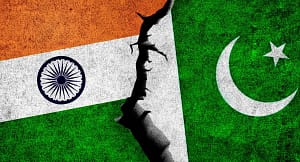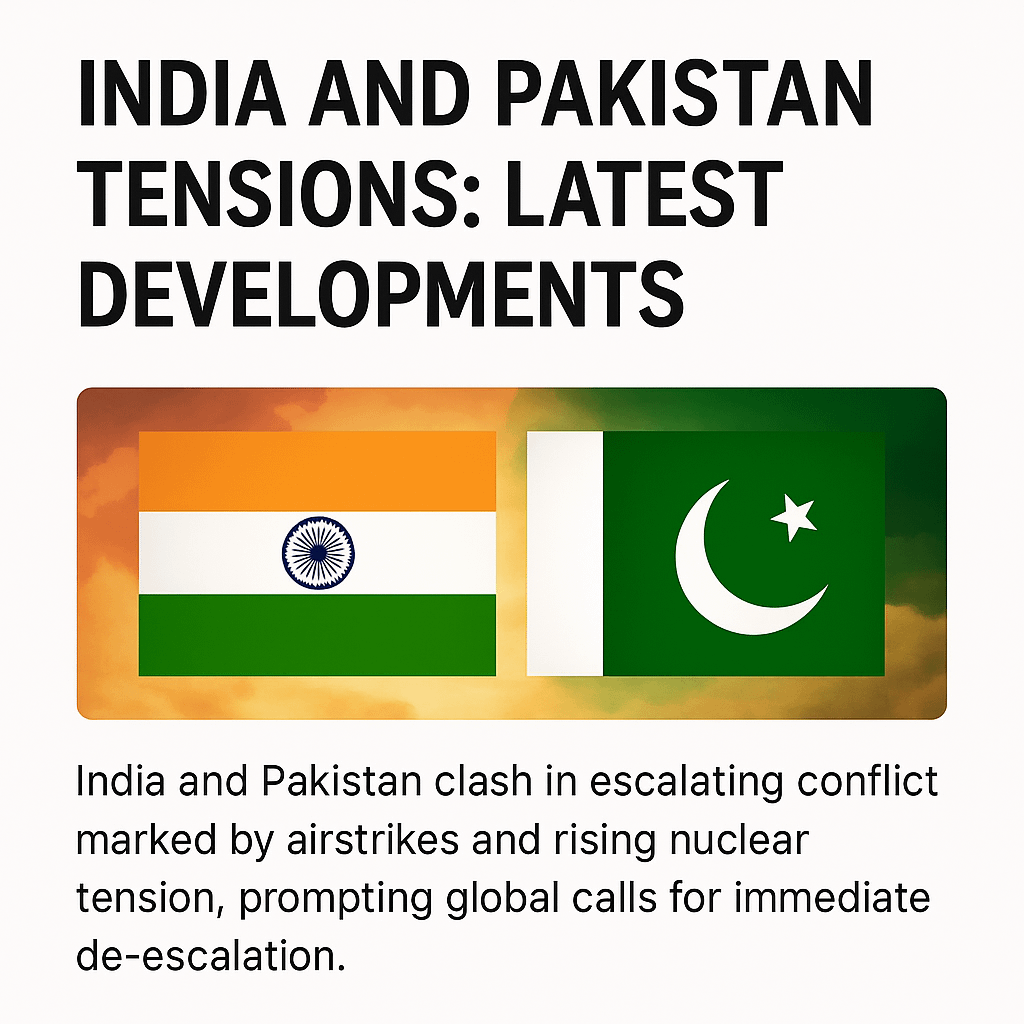The recent escalation between India and Pakistan has sparked international concerns, with both countries engaging in military strikes that have claimed lives and led to a significant rise in tensions. “India’s military strikes and Pakistan’s counter-response have brought the two nuclear-armed nations to the brink of a broader conflict,” an analyst pointed out. The crisis has unfolded quickly, with strikes, airspace violations, and escalating rhetoric coming from both sides.
The Escalation: A Series of Strikes
The violence began with India’s military operation against militant groups in Pakistan’s Khyber Pakhtunkhwa province. In retaliation, Pakistan launched a series of airstrikes, resulting in the downing of Indian fighter jets by the Pakistani military. This escalation is a continuation of long-standing tensions centered around Kashmir and the disputed territories between the two nations.
On May 7, 2025, India launched airstrikes targeting several locations in Pakistan’s Punjab region, claiming to target insurgent camps linked to the recent attacks on Indian civilians in Jammu and Kashmir. The operation, referred to as “Operation Sindoor,” was a direct response to an attack earlier in the month that left several Indian civilians dead.
Key Players and the Rising Death Toll
While the military actions have caused widespread concern, the biggest fear lies in the risk of a direct nuclear confrontation. As both nations possess nuclear capabilities, their military movements are being closely monitored by the international community. As of the latest reports, at least 30 military personnel from both sides have been confirmed dead, with dozens more injured.
Pakistan’s Prime Minister Imran Khan condemned India’s actions, calling it an “unprovoked assault on Pakistan’s sovereignty.” Meanwhile, India’s Prime Minister Narendra Modi declared the strikes a success, claiming that Pakistan’s military presence in the region posed a threat to India’s national security.

Global Reactions: Diplomatic Efforts to De-escalate
The international community, including the United Nations, has called for both sides to pull back and avoid further military action. The US and China have also issued statements urging restraint, with concerns that the situation could quickly spiral out of control. Washington Post reported that the United States is working behind the scenes to broker peace talks, but tensions remain high.
International organizations have urged both India and Pakistan to reconsider their military operations and seek dialogue before the situation worsens. The fear is that with both countries on high alert and military actions intensifying, a full-scale war could break out, which would have devastating consequences not just for the South Asian region but for global security.
The Role of Nuclear Weapons and Global Security
With both nations being nuclear powers, the international community is particularly concerned about the potential consequences of the conflict. The threat of nuclear escalation remains a key issue as military operations continue. Analysts fear that even a small miscalculation could lead to catastrophic results, triggering a nuclear exchange that could reshape the region permanently.
Experts have warned that diplomatic intervention is crucial to prevent any further escalation. The United Nations Security Council has scheduled an emergency meeting to discuss the situation and call for an immediate ceasefire. However, both countries have been firm in their stance, with each accusing the other of provocation.
What’s Next for India and Pakistan?
As the situation develops, the world is watching closely. “Both countries must step back from the brink before it’s too late,” said an international diplomat. The global community is hopeful that diplomacy will prevail, but with both sides entrenched in their positions, it remains unclear how long this fragile ceasefire will last.
As the crisis unfolds, it is clear that the India-Pakistan conflict remains one of the most volatile and dangerous geopolitical challenges of the modern era. Both nations must navigate their differences with care to avoid a broader war.
For More Information
To stay updated with ongoing developments, check these reputable sources for real-time news and in-depth analysis:
- BBC: India-Pakistan Tensions
- Al Jazeera: India and Pakistan Escalation
- South China Morning Post: Tensions Between India and Pakistan

